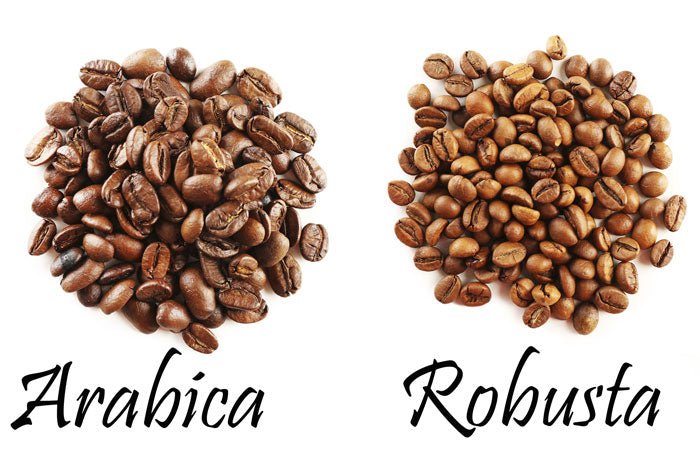This time we are going to see the diverse processing methods employed by coffee producers and its differences, each of them granting the beans with unique flavors, aromas, and characteristics. In the journey from bean to cup is a tale of craftsmanship, innovation, and meticulous attention to detail, among the myriad techniques, washed, natural, honey, and fermented processing stand out as pillars of coffee production, shaping the sensory experience of coffee enthusiasts worldwide. Then we are going to look into the intricacies of these processing methods, unraveling their differences and celebrating the richness they bring to the world of coffee.
Coffee processing refers to the series of steps undertaken to transform ripe coffee cherries into green coffee beans, ready for roasting. This crucial stage of production significantly influences the final flavor profile of the coffee, making it a cornerstone of quality and differentiation within the industry. While various processing methods exist, washed, natural, honey, and fermented processing represent four distinct approaches, each with its own set of techniques and outcomes.
As coffee industry grows, it creates new processing methods in order to differenciate in flavors and complexities, each technique leaves an indelible mark on the beans, shaping their aroma, flavor, and character. So we are going on a journey through the world of coffee processing, where each of the processing methods unravel the sensory delights upon discerning coffee enthusiasts.
The washed process, also known as the wet process, is one of the most common methods used in coffee production, is a method revered for its precision and consistency. It begins with the meticulous selection of ripe cherries, which are then pulped to remove the outer skin and fruit pulp, revealing the inner parchment layer enclosing the beans. Following pulping, the beans undergo fermentation, during which enzymes break down the remaining mucilage layer surrounding the beans. After fermentation, the beans are thoroughly washed to remove any residual mucilage before being dried either on raised beds or mechanical dryers. The result is a clean, bright cup characterized by pronounced acidity, clarity of flavor, and a crisp finish.
In contrast to the washed method, the natural process embraces a more hands-off approach to coffee production, allowing nature to work its magic. Ripe cherries are carefully sorted and then spread out in a single layer on raised beds or patios to dry under the sun. During the drying process, the entire cherry, including the outer skin and fruit pulp, remains intact, imparting its sugars and flavors to the beans. As the cherries dry, fermentation occurs within the fruit, leading to the development of intense, fruity flavors and a rich, full-bodied mouthfeel. Natural process coffees often exhibit vibrant notes of berries, tropical fruits, and chocolate, with a lingering sweetness that tantalizes the palate.
The honey process, also known as the pulped natural process, strikes a delicate balance between the washed and natural methods, offering an alternative to traditional processing techniques. Ripe cherries are depulped to remove the outer skin, leaving behind a sticky layer of mucilage that coats the beans. Rather than fully washing the beans, producers allow them to dry with varying degrees of mucilage intact, ranging from white honey (less mucilage) to red honey (more mucilage). As the beans dry, the sugars in the mucilage interact with the beans, imparting sweetness and complexity. Honey process coffees often exhibit a smooth, syrupy body, with notes of caramel, honey, and stone fruits.
And finally, the fermented process represents a departure from conventional methods, harnessing the transformative power of fermentation to unlock new dimensions of flavor. In this method, ripe cherries undergo controlled fermentation before processing, allowing naturally occurring microbes to metabolize sugars and organic acids within the fruit. The duration and conditions of fermentation vary widely, ranging from a few hours to several days, depending on the desired flavor profile. Fermented coffees showcase a diverse range of flavors, from vibrant fruitiness to subtle floral notes, with a pronounced acidity and complexity that captivate the senses.
The differences between washed, natural, honey, and fermented coffees extend beyond their processing methods and into the realm of flavor and sensory experience. Washed coffees are celebrated for their clean, bright acidity and pronounced clarity of flavor, making them a favorite among aficionados of specialty coffee. In contrast, natural process coffees offer a sensory journey characterized by intense fruitiness, lush sweetness, and a velvety mouthfeel, reminiscent of ripe tropical fruits. Honey process coffees strike a delicate balance between the vibrancy of naturals and the crispness of washed coffees, delivering a smooth, syrupy body and nuanced sweetness. Fermented coffees, with their complex fermentation-derived flavors and lively acidity, offer a glimpse into the cutting edge of coffee innovation, pushing the boundaries of flavor and exploration.
In the rich tapestry of coffee processing methods, washed, natural, honey, and fermented coffees stand as testaments to the ingenuity and creativity of coffee producers worldwide. From the meticulous craftsmanship of washed coffees to the wild fermentations of natural and fermented coffees, each method offers a unique expression of terroir, tradition, and innovation. As consumers, we have the privilege of savoring the fruits of this labor, exploring the diverse flavors and aromas that define each processing method. Whether we find ourselves drawn to the bright acidity of washed coffees, the lush sweetness of natural process beans, or the exotic complexity of fermented coffees, one thing remains clear: coffee processing is an art form, inviting us to embark on a sensory journey of discovery and delight with every cup.
Are you interested in sourcing directly from our farmers. contact us to get you more information



